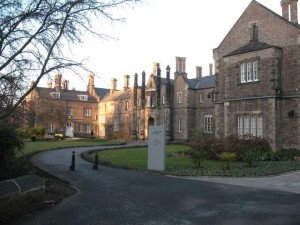Next Thursday, York St John University Vice Chancellor, Karen Stanton will deliver the keynote speech at the Universities Association for Lifelong Learning 2017 conference. To mark this I am writing a series of five blogs about lifelong learning and the role of York St John and other universities in this.
Firstly, what is meant by lifelong learning? Lifelong learning is any voluntary learning activity an individual undertakes at any stage of life. We often think of learning as something which happens at school, perhaps at university and then, after your early twenties, “real life” takes over. However, in the digital age which we now live in, the rate of change is ever-increasing and continued learning is vital both for employees to remain employable and for employers to continue to be competitive in the global economy.
The UK government has recognised the benefits of lifelong learning in its Industrial Strategy
“Faster changes in technology mean we need to help more people retrain in new skills, so we will embed the concept of lifelong learning.”
The paper also makes two other important points which underline the need for lifelong learning:
- Our ageing population means we are living and working longer – 30% of people will be aged over 60 by 2039
- In the next 10-20 years, an estimated 35% of UK jobs will be replaced by technology
This means that learning is relevant and important at any age and indeed across a broad spectrum of society. On this point, a report by National Institute for Adult Continuing Education found that “participation in post-compulsory learning by adults who suffer the most economic and social disadvantage has always been much lower than for other groups.” However, participation in mature learning has dropped across the spectrum by 29% since 2008.
There is clearly much scope for improvement in lifelong learning participation and universities are well-positioned to facilitate this.
A significant factor on whether you will engage in later life learning is how engaged you were when you were younger. There is a lesson and a role for universities here to be seen as part of the community, a place for learning from an early age and not as a closed door institution only accessible to certain individuals.
On Monday I will explore this topic further by looking at the Green Apples project run by York St John – an aspiration raising project for pupils at local primary and secondary schools in York.

